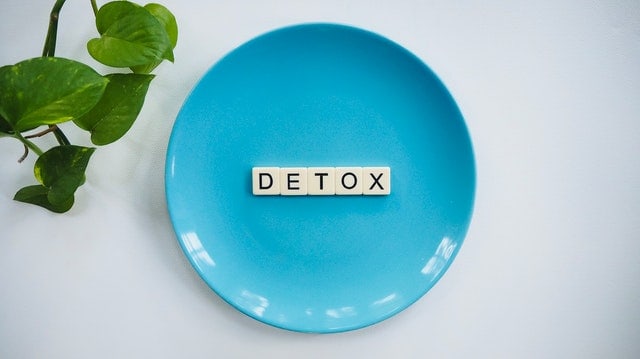
time to detox?
Hello? Is anybody there? Or is everyone still doomscrolling, sucked into the vortex of news and social media after the past two weeks?
Perhaps it’s time to detox.
For the past five years, I have studiously avoided mainstream media with only a glance at daily headlines so I wouldn’t be completely ignorant.
My policy has been to not give the soon-to-be-erstwhile head of state and the politicians (both sides of the aisle) my time or energy or “clicks.” I simply refused to read news that wouldn’t in some way uplift me. (Bring on the cute puppies!)
And yet, even I have been obsessed with checking what’s happening in our nation’s capital since January 6—which will likely go down in my personal history as the most memorable birthday ever!
And I definitely feel as though my work, my body, and my life have suffered for it.
Yup, time to detox.
to detox or not to detox?
The new year often finds us making resolutions—or at least setting intentions and/or choosing a “word for the year”—and many people I know decide to “do a detox,” which on the nutrition front can include anything from doing a program such as Whole 30 or the Daniel Plan to outright fasting and various less-than-pleasant interventions such as coffee colonics.
I’m not judging. I’m a firm believer in bio-individuality and personal choice—and personally, I’d rather take my coffee with a splash of milk through the other end of my digestive tract. (Although I did give it up entirely last year.)
As a health coach, I appreciate that a good reset can be invaluable for clients; however, it’s disheartening to see people treat their bodies horribly all year and believe that annual detox in January will solve all their woes.
Integrative Nutrition® detox
In Integrative Nutrition®, the style of health coaching I practice, a detox is not an occasional event; instead, we consider it an ongoing practice developed over time.
And detoxing involves not just clean eating but clean living on a daily basis, gradually eliminating harmful foods, materials, and habits and—more importantly—replacing them with foods, materials, and habits that benefit us.
The beauty of that definition is that it allows for the more extreme forms of detoxing if that’s something you want to do—and it makes room for those who either don’t want to or can’t for medical reasons partake.
Like learning to walk, ride a bike, or read, most of us can get to the same place on our own timeline and using our own strategies!
clean living
To a lot of us, “detox” sounds much sexier than “clean living.” Clean living sounds like it’s a lot of work and involves a lot of deprivation.
If that’s what you believe, I’m here to change your mind!
To me, the word “detox” feeds into our tendency toward all-or-nothing thinking: you either participate 100% or you don’t do anything; you’re either pure at the end, or you’re not; you either succeed or you fail; you win or you lose.
“Clean” is a spectrum: you can always shift your food and lifestyle choices one step and claim to be cleaner than the day before. And clean can even be somewhere in the messy middle: you don’t have to aim for sanitary or sterile!
And just as you clean your home—whether it’s room by room or task by task—you can clean up one area of your life at a time rather than taking on everything at once.
primary food detox
Cleaning up your food choices might feel really overwhelming, especially if you currently exist on fast food takeout and frozen dinners.
Perhaps it would be easier to start with another aspect of your life, what Integrative Nutrition® calls primary foods—all the other aspects of your life that nourish you (or don’t).
For example, my comment about news and social media in the opening of this post: right now, cleaning up my habits around reading the news might be a good place for me to begin. My habit of reading innumerable articles and posts, most of which are really saying the same thing, is not really serving me.
The most important shift to make, though, is not to just remove that habit but to replace it with something that does serve me—to replace it with a healthier, cleaner habit. It could be as simple as going back to reading a book or a bit more challenging, such as journaling. (Yeah, still working on that one!)
detox + overwhelm
If you’re like most of the women I work with, you are overwhelmed: you work in a mission-driven field, you manage a household that may well include children in middle or high school, boomerang adult children, and aging parents, and you have no time for yourself. The pandemic has only increased your mental load.
The last thing you need are the physical and mental side effects of a full-on detox. Because let’s be honest, you may feel great when you come out the other side—and the actual process can be debilitating. Nobody I know has the time for that.
Nor do you need the emotional pressure of “failing” at a detox—you already have a harsh inner critic, no need to feed her more ammunition.
If this sounds like you, then we should talk about clean living—about detoxing Integrative Nutrition® style.
make the connection
If you’ve caught the “new year, new you” bug and are not up to a full-on detox because you’re burning out already, join me in February for a free 5-day challenge I call Goodbye, Burnout! You’ll get a taste of how I work, 5 easy steps toward cleaner living, and some bonuses along the way. Challenge starts February 1, so register now!
[Photo by Sean Hayes from Pexels]



